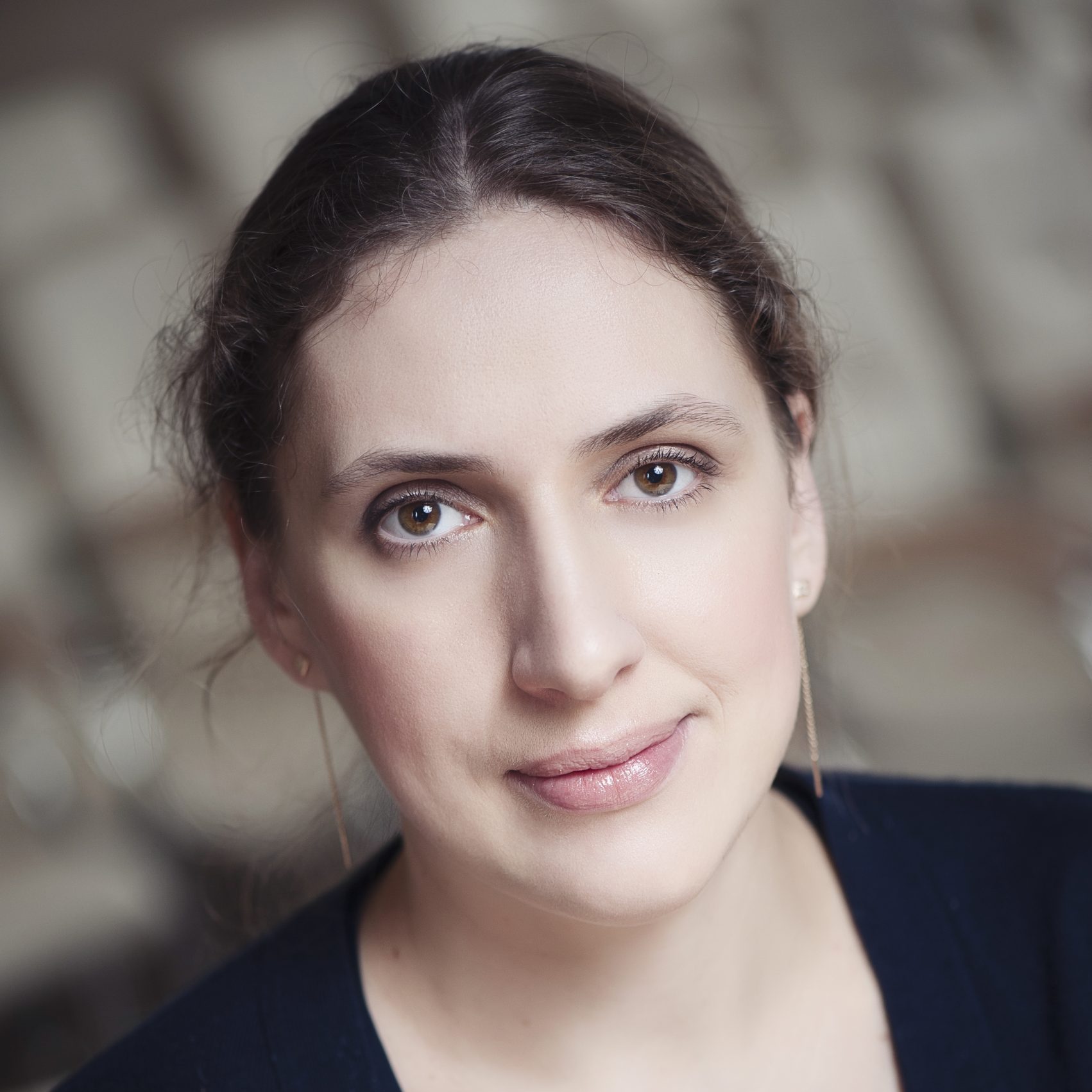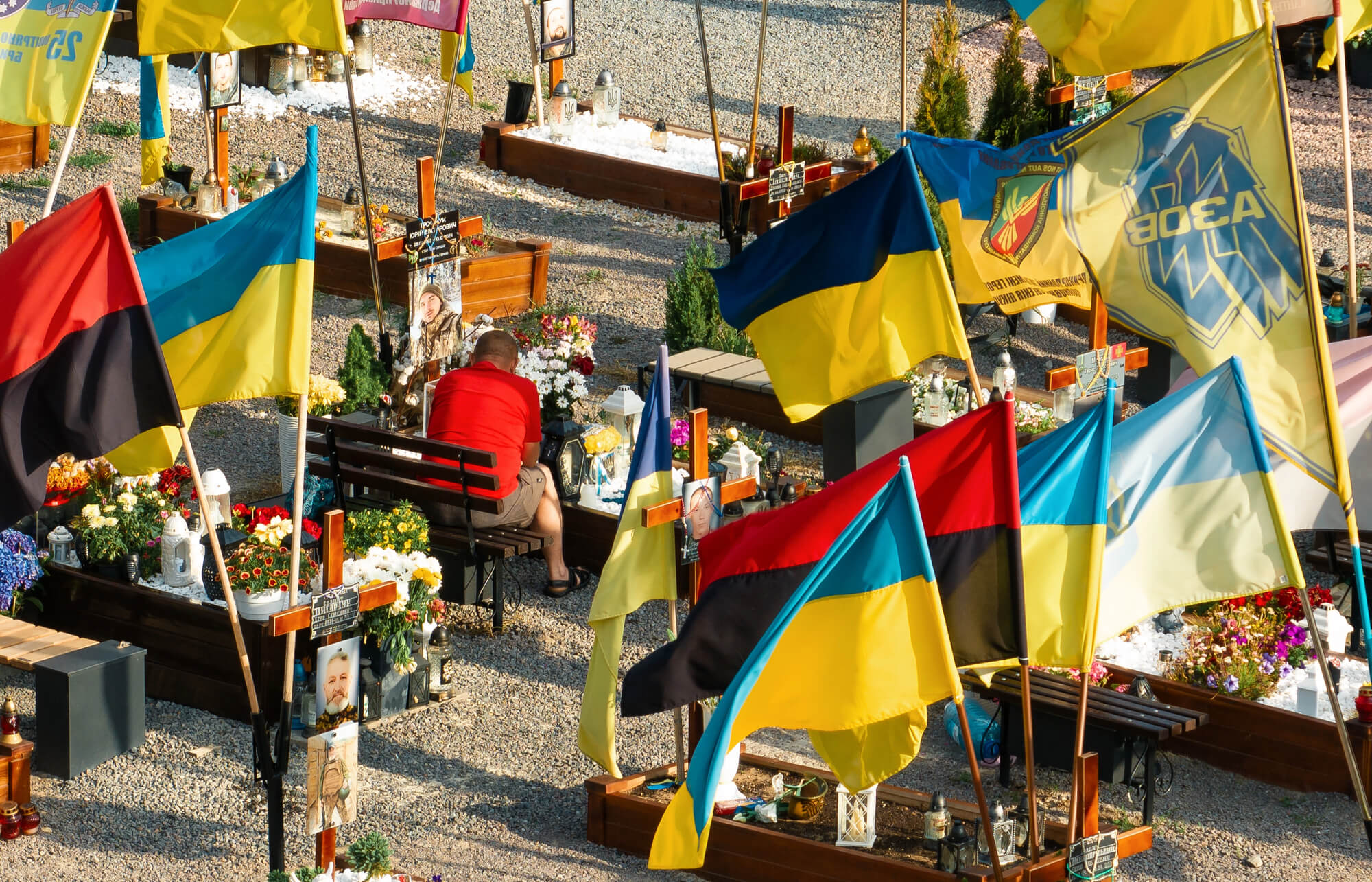Winston Churchill, a bigger-than-life statesman and prolific author, observed, “History will be kind to me for I intend to write it.” He was largely successful and received a Nobel prize in literature “for his mastery of historical and biographical description as well as for brilliant oratory in defending exalted human values”. Other politicians’ attempts to write (or rather rewrite) history often turned out to be embarrassing. Vladimir Putin tried to provide alternative accounts of WW2 and more generally Russian/Ukrainian history but facts and fantasy do not mix well in this genre. Fortunately, one area in which authors have complete freedom to imagine events is “alternative history”. This literary device can help appreciate significance of past or current events. For example, what if Russia conquered Ukraine in 2022? Below is one version of events (any resemblance of names is a coincidence).
On February 24, 2022, Russia starts a military operation to denazify Ukraine. The glorious Russian troops advance swiftly and control Kiev (renaming Kyiv into Kiev) on the second day of the operation. Russia Today reports jubilant crowds. President Zelensky and his family are captured and publicly executed for their crimes against humanity. The rest of the government is arrested, court-martialed, and hanged in Babi Yar to send a signal for anybody who may be harboring Nazi values in Ukraine (e.g. speaks Ukrainian) or elsewhere. Big and small supporters of the criminal regime as well as its opponents such as Petro Poroshenko, a former president of Ukraine, are rounded up and put in camps to protect them from the outrage of Ukrainian masses liberated by the Russian army.
To show mercy, President Putin establishes a new program to transport these criminal elements to Siberia and other remote but hospitable parts of Russia to give them a chance to redeem themselves. Conveniently, GULAG camps are vacant and so shipments can commence immediately. Obviously, some Ukrainians fail to appreciate the benefits of their new freedom and they need convincing. Building on the vast experience, the Russian security organs establish chambers in every city, town and village where Ukrainians can touch live wires to verify the strength of the Russian electrical grid. The audio and video recordings of these experiences are distributed via social media to ensure that the lessons can be absorbed painlessly. Pursuing cost effective solutions, the Russian authorities promote mass graves to maintain minimal sanitary conditions in troubled areas (high energy prices make crematoriums too expensive).
Although Russian soldiers and officers are incredibly sensitive to the local population, some children lose their parents. Being concerned that the West can corrupt the children with LGBTQ+ values, the Russian government sets up a network of orphanages in which proper, traditional values of Mother Russia are taught. Fortunately, many buildings are vacated and need only trivial renovation after modest shelling. To the same end, the Ukrainian books are quickly taken from libraries and burnt to heat the building and to stop Ukrainian fascists from spreading the poison of Ukrainian nationalism. The history books—of course, in Russian—are imported from Russia to provide the correct perspective on Little Russia, previously known as Ukraine. Those who struggle to speak Russian are provided with all-expenses-paid educational programs in camps. Businesses that sell bortsch, salo or any other Ukrainian paraphernalia need to pay a “solidarity tax” (to pay for the damages inflicted by the Ukrainian Nazi) and put a trident sign on their windows to warn the public that these outlets offer potentially dangerous goods and services. Local communities are encouraged to boycott these businesses.
Some Ukrainian traitors try to flee the country but the Russian government expeditiously erects a wall using labor from the camps. The Russian public is satisfied with the budgetary discipline exercised during the construction of the wall. Indeed, the labor was provided voluntarily while materials and equipment are donated by Ukrainian firms previously owned by the Nazi sympathizers.
These developments draw somewhat mixed but generally positive reactions from the global community. Because Russia’s new lebensraum is expected to generate much wealth, the FSB plans to forgive any loans issued to French, German, American and other political parties and figures. This creates well-grounded optimism that the West can have a deal with Russia. Viktor Orban’s dream to have a common border with Russia is fulfilled. Vienna is excited to invite Vladimir Putin to a dancing ball organized by a former Austrian foreign minister. Various government officials and experts are satisfied that their forecasts (Ukraine should vanish in a few days) are remarkably precise. The EU as well as China and India are impressed with the stability of Russian energy supplies. The genuine remorse of Ukrainian Nazis creates goodwill so strong that the International Olympic Committee allows Ukrainian athletes to compete (generally under the Olympic flag but the best can bear the Russian flag) in the 2024 Olympic Games in Paris. Although Ukrainians who managed to flee spread stories of horrific atrocities (the United Nations launches an investigation with the results expected in March 2042), the media dismisses these as obviously false fabrications. After all, the Russian great culture could not nurture monsters that would destroy cities, freeze people to death, rape women, etc. In fact, the fascination with Russian culture reaches new heights and Pushkin is mandatory reading in European schools (statutes of Pushkin are erected in every city).
To fully exploit the potential of cooperation with Russia, Moldova, Georgia, and Kazakhstan accept the Russian invitation to form a new union with the capital in Moscow. Russian military bases there are expanded to instill more confidence in citizens. Sweden and Finland are sent a special invitation to join a defensive union with Russia which they gladly accept (after being unable to accept these two countries, NATO is dissolved). The European Union endorses an even more ambitious plan. Specifically, the vision is to have a union from Lisbon to Vladivostok, as envisioned by the Supreme Leader Vladimir Putin many years ago. To recognize the leading role of Russia in forming the union, the European Union aligns its legislation and practices with Russia’s (e.g., highest bribes win cases in courts, police can use brute force at will, people can move only with an approval from the authorities, parliaments are abolished to save money). After a short debate, Gerhard Schoeder is chosen to lead the negotiations with Russia on this matter. He is optimistic: the “old” Europe works hard on Poland and the Baltic states to set up a land corridor from Belarus, a minor Russian province, to Kaliningrad oblast. The new union is expected to last 1,000 years.
Awe-struck by the speed and effectiveness of these policy moves, Taiwan invites the Communist Party of China (CPC) to lead the government in Taipei. The CPC leadership is impressed by the maturity of this decision and starts to form a coalition government immediately. Unfortunately, the non-communist members fall ill or disappear and so the CPC has to take the burden of governing unilaterally. The first decree of the new government is to nationalize TSMC and other chipmakers. Consistent with the spirit of the time, Pyongyang sends a delegation to Seoul to develop a peaceful nuclear energy program or face the consequences.
With America being first, the White House is pleased with the savings: there is no need to send weapons or economic aid to Ukraine (as well as Taiwan, Korea, etc.) and so the fiscal cliff is averted. Furthermore, there is a decision to liberalize party finances and allow direct funding from Moscow to eliminate the middlemen and increase transparency. With the friendly Kremlin, the disarmament talks are revived to reflect the new era of trust between the superpowers. (Barack Obama is condemned for calling Russia a regional power and for sending blankets to Ukraine after Russia reunited with Crimea; “annexation” is a forbidden word.) The bipartisan view is that the US needs to explore the benefits of one-party systems.
The fate of Africa, Latin America, Middle East, Indonesia, and other neutral countries is to be determined by a peace conference in Yalta. The emerging consensus is clear: the world has too many countries and some aggregation is necessary. The demand for geographers is unusually high as there is a need to redraw borders in line with new realities.
The Nobel committee awards the peace prize to Vladimir Putin “for not using nuclear weapons and thus preventing the war in Europe and Asia.” On second thought, the committee decides to give him the literature prize too “for a creative rethinking of history and poetic voice of liberty and freedom in Ukraine.” Apparently, two Nobels is not enough as Putin refuses to accept this insulting “honor”.
Things take a wrong turn. In his infinite wisdom, Putin sends tanks to Poland. He claims that these are recreational vehicles (RVs) meant to assist the Russian speaking population (Russia Today confirms). The realpolitik experts rejoice that Putin refrained from using nuclear weapons and escalation is avoided. Putin interprets this favorable reception as an invitation to further his fight for peace. Columns of RVs advance to Budapest (to commemorate 1956), Prague (1968), Berlin (1945) and other European capitals. The parades are spectacular. The Russian public is particularly pleased to send a convoy of RVs to celebrate the liberation of Paris in 1814. The peace-loving Europe meets these liberators with flowers (everybody remembers the recent liberation of Kyiv Kiev). The elites look forward to an opportunity to meditate in Siberia and collect field material for future literary masterpieces about the triumph of the Russian people (there is no suffering in Russia). Members of the European communist parties have a field trip to GULAG to refine progressive ideas such as war communism. Fortunately, Stasi files are still intact. The agency is reinstated with zero opposition and works very hard to compensate for the time lost since 1989. At the same time, the Truly Socialist Manufacturing Cooperative (former TSMC) is instructed to sell electronics only to friendly nations that do not shoot down balloons. Showing a lack of restraint in these triumphant times, Pyongyang sends a 10 megaton present to Seoul (of course, Pyongyang was provoked!). This proves to be the last straw for Washington that does not want to receive similar presents. A friendly exchange of nuclear weapons concludes the timeline with a rather cold winter.
This history is absurd but many elements are inspired by true events. The “Ukraine” part reflects the experience of Ukrainians in the territories occupied by Russia. Torture chambers, mass graves, filtration camps, deportations, kill lists, etc. are real. Hitler proclaimed the Reich for 1,000 years. The infamous Munich deal sacrificed Czechoslovakia to get “peace” in Europe. Millions of Ukrainians perished in Soviet GULAGs and the Holodomor. The Berlin wall was necessary to stop the outflow of people from the workers’ “paradize” in East Germany. Russian money bankrolled ultra-right and other extremist parties in Western democracies. Gerhard Schoeder traveled to Moscow to negotiate Ukraine’s fate with Putin. “Do not provoke Russia” and “do not escalate” are major themes in policy discussion in the West. Russia bombed Kyiv when the United Nations Secretary-General was in the city. China views Taiwan as its territory.
For now, Ukraine stands in the way of this and similarly dark histories. But these or other paths are not a destiny. We can defeat the Russian aggression, beat back revisionist forces and have a free world. Or we can have tyrannies and empires that end mankind. The choice is ours to make.
Attention
The authors do not work for, consult to, own shares in or receive funding from any company or organization that would benefit from this article, and have no relevant affiliations




